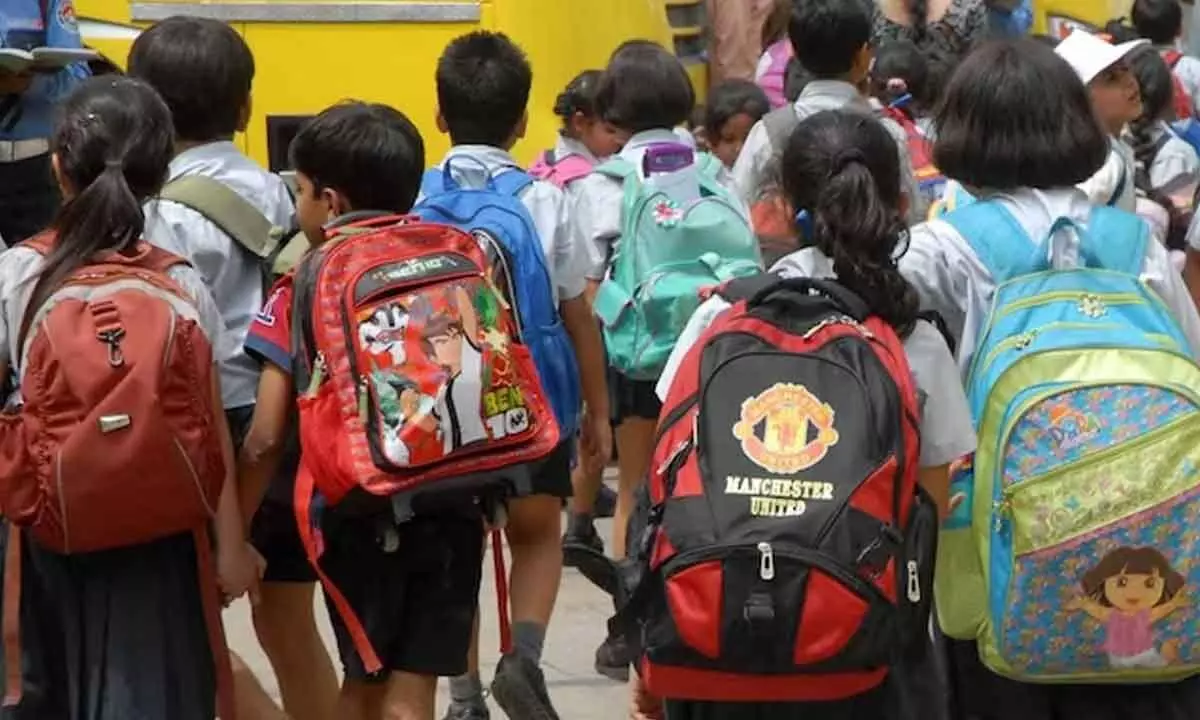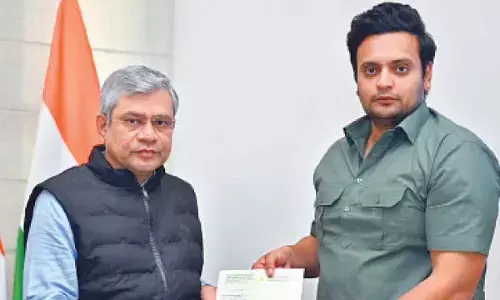School Education Saga-XIII: Why is TG shying away from setting up SSSA and SQAAF?

Once the standards are set for all the schools, the information has to be self-disclosed by every school
Hyderabad: Is the Telangana government going all out to embarrass itself, replicating the models of Andhra Pradesh to convert all the Anganwadi centres into English medium schools, apart from shying away to take a cue from the National Education Policy-2020 (NEP-2020) to establish the State School Standards Authority (SSSA)?
Does turning every school into an English medium one ensure automatic improvement of standards in school education?
Currently, a school's performance is linked to the number of students who passed out with distinction or got first class in the SSC examinations. However, the NEP-2020 pointed out that such validation of standards is simplistic. It insisted on a full view of the performance of all stakeholders in the school education than driving it in a top-to-bottom approach. For this, it has come up with a proposal to set up a State School Standards Authority (SSSA) and make the State Council of Education Research and Training (SCERT) an independent body to act as a catalyst for the all-around improvement of standards in school education.
The scheme proposes for an effective quality self-regulation or accreditation system to be instituted for all stages of education. This includes ‘pre-school education – private, public, and philanthropic – to ensure compliance with essential quality standards.’
For this, it insisted all schools follow certain minimal professional and quality standards by setting up an independent entity in the name of SSSA.
In turn, the SSSA will establish a minimal set of standards based on basic parameters. They include safety, security, basic infrastructure, number of teachers across subjects and grades, financial probity and integrity. Besides, putting in place a sound process of governance to be followed by all schools. Unlike in the present, the SCERT is an independent body in consultation with various stakeholders, ‘especially teachers and schools. Transparent public self-disclosure of all the basic regulatory information, mandated by the SSSA, will be used extensively for public oversight and accountability.’
Further, once the standards are set for all the schools, the information has to be self-disclosed by every school. Also, the disclosure format will be decided by the SSSA, considering the global best practices for standard-setting for schools.
On their part, the schools shall make available information and keep updated and accurate by all schools, on the public website maintained by the SSSA and the schools’ websites. Further, "any complaints or grievances from stakeholders or others arising, out of the information placed in the public domain shall be adjudicated by the SSSA," it adds.
The new proposal was meant to bring down significantly the heavy load of regulatory mandates currently borne by schools. On its part, the SCERT in consultation with the National Council of Education, Research and Training (NCERT) act in academic matters. It includes setting up academic standards and curricula for the schools in the state.
The SCERT has to act to initiate the process of a change manager to develop a School Quality Assessment and Accreditation Framework (SQAAF).
The initiative is meant for the reinvigoration of CRCs, BRCs, and DIETs which must change the capacity and work culture of these institutions in three years, developing them into vibrant institutions of excellence. However, the certification of competencies of students at the school-leaving stage will be handled by the Boards of Assessment and Examination in each State.










